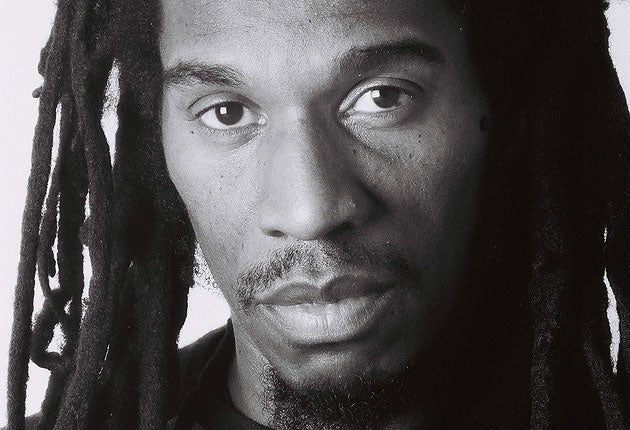Benjamin Zephaniah: We must stand up to hatred

Your support helps us to tell the story
From reproductive rights to climate change to Big Tech, The Independent is on the ground when the story is developing. Whether it's investigating the financials of Elon Musk's pro-Trump PAC or producing our latest documentary, 'The A Word', which shines a light on the American women fighting for reproductive rights, we know how important it is to parse out the facts from the messaging.
At such a critical moment in US history, we need reporters on the ground. Your donation allows us to keep sending journalists to speak to both sides of the story.
The Independent is trusted by Americans across the entire political spectrum. And unlike many other quality news outlets, we choose not to lock Americans out of our reporting and analysis with paywalls. We believe quality journalism should be available to everyone, paid for by those who can afford it.
Your support makes all the difference.Genocide is an appalling crime against humanity that we hope will never again be repeated. Today, as we approach Holocaust Memorial Day , we might stop and reflect on the fact that it still has the potential to be repeated and perpetrated around the world, unless we are on our guard and understand that our actions today have consequences tomorrow.
The use of the term genocide can be problematic and contentious but it shouldn't disguise historical fact. One of the first modern day genocides took place in Armenia, a part of modern day Turkey in 1915. This massacre of 1.5 million people, indiscriminate of age or gender, is still not acknowledged as genocide by Turkey - long after it took place. The United States did not recognise or act on the events at the time and consequently Hitler admitted looking at the Armenians and deciding that if they can get away with it, he could also. If people don't recognise something, its entire existence is erased. It begs the question - if the United Kingdom and United States had not recognised the Holocaust when it happened, would anyone think it had ever existed? Who decides what we remember and what we don't – and does it mean that things we don't remember or recognise didn't exist and don't count?
My earliest recollection of hatred was in the late 60s when I was eight years old, and I still have the scar to prove it. I was walking home from school in Handsworth, Birmingham, when another boy came cycling past with a brick in his hand. He hit me across the back of my head with the brick and shouted 'You black bastard!', as he rode off. When I got home, blood pouring from the back of my head, my mother told me that some people in the world are just like that and it's something we have to live with. It was not even a consideration to report the crime – it would have been ignored anyway. This incident was the first time I realised I was different and that people actually hated me for who and what I was. The scar on the back of my head is a constant reminder of this.
People have to understand the past to see the future, they have to start recognising the dangers of the present to prevent them escalating into the Holocaust of the future. A close late friend of mine recently told me a story of how, when she was very young, she went to a political meeting in Austria with her mother and auntie. After the meeting, the two adults were debating the event, concluding that the main political figure, who was a radical speaker, would never amount to anything and should just be ignored. That main figure was Adolf Hitler.
When people don't recognise these dangers, the problems start. Call it innocent ignorance, call it optimism, however you want to look at it, unless we recognise and stand up to these figures, who knows where it can lead? My friend's mother and auntie certainly would never have imagined what Hitler could go on to do in the years that followed that meeting.
Bob Marley said in one of his songs 'Well the biggest man you ever did see, was once a baby', and that is what interests me as a writer. Hitler was once a baby and would have been looked on adoringly by people. He then went on to become one of the most powerful men in history, orchestrating the killings of hundreds of thousands of innocent people. The boy who racially attacked me in Handsworth may have gone on to abuse and physically hurt other people since. His attack on me was left unchecked so what's to stop him?
It is so important that we have Holocaust Memorial Day in January to remind us to acknowledge how bad we can be to each other, whether it's direct and intentional or indirect and unintentional. All it takes is one discriminatory group to gain power and it can all fall apart. We must join together to recognise where these acts of hatred, regardless of size, can lead if left unchecked.
I urge all Britons to “Stand up to Hatred” and recognise the impact we can have on our future. By considering these things, next time we see, hear, or experience any act of hatred anywhere and in any form, we can make a better future.
Join our commenting forum
Join thought-provoking conversations, follow other Independent readers and see their replies
Comments